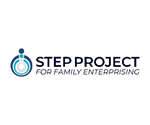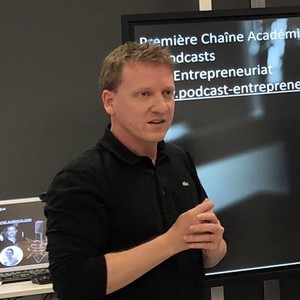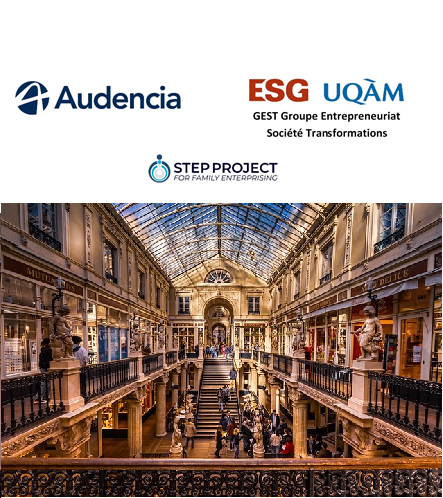The PDW
Find out all the information about the 3rd PDW on Family Entrepreneurship
The Special Issue
Find out all the information about the Special Issue of International Journal of Entrepreneurship Behaviour and Research on Family Entrepreneuring.
The Program of the PDW
Discover the program
The Program of the PDW
DAY 1
What is Family entrepreneuring
Round table moderated by Rodrigo Basco
Associate Professor, Sheikh Saoud bin Khalid bin Khalid Al-Qassimi Chair in Family Business, American University of Sharjah
With: Jenny Helin, William B. Gartner, Alistair Anderson, Olivier Germain, Christina Constantinidis, Miruna Radu-Lefebvre, Vincent Lefebvre
Monday, October 12, 2020
2pm-2.45pm CET Paris Time
Family entrepreneuring and temporality: a critical outlook and the beginning of a research agenda
Jenny HELIN
Senior lecturer at the Department of Business Studies, Uppsala University, Sweden
Monday, October 12, 2020
2.45pm-3.30pm CET Paris Time
Paper Development Workshop – Session 1
Moderated by Miruna Radu-Lefebvre and Olivier Germain
Monday, October 12, 2020
3:30pm-5:00pm CET Paris Time
- L’instant Taittinger: Entrepreneuring in a Family Champagne House
Elen Riot, Emmanuelle Rigaud, Ilenia Bua & Fabrizio Maria Pini
- A micro foundation analysis of corporate entrepreneurship process in family businesses
Hela Chebbi & Michaël Laviolette
- Endogenous knowledge: the base for women entrepreneurial activity in Southwest Benin
Dagoudo A. Bienvenu, Moumouni M. Ismail, Nouatin S. Guy & Hountondji S. Paul
- Looking at shared leadership in couple owned business: Dramaturgical perspective
Angela Carradus & Natalia Vershinina
Who, how and when family entrepreneurship occurs
William B. GARTNER
Bertarelli Foundation Distinguished Professor of Family Entrepreneurship at Babson College, USA and a Visiting Professor in entrepreneurship at Linnaeus University in Sweden
Monday, October 12, 2020
5:00pm-5:45pm CET Paris Time
DAY 2
The idea of agency in family business
Alistair ANDERSON
Distinguished Professor at the Management School of Lancaster University, UK
Tuesday, October 13, 2020
2:00pm-2:45pm CET Paris Time
At the reading/writing intersection: exploring writing from a processual outlook
Jenny HELIN
Senior lecturer at the Department of Business Studies, Uppsala University, Sweden
Tuesday, October 13, 2020
3:15pm-4:45pm
Paper Development Workshop
Moderated by Christina Constantinidis and Vincent Lefebvre
Tuesday, October 13, 2020
5:00pm-6:30pm CET Paris Time
- Family business growth expectations shaped by entrepreneurial competencies and society’s individualism: the case of Egypt, Madagascar, Morocco and Turkey
Abderrahim Barakat, Asmaa Dahalla & Khalid El Ouazzani
- How do French leaders perceive the business succession? A theoretical proposal of 4 profiles
Lea Wang & Jean-Louis Tavani
- Entrepreneuring within Family Businesses: a Socioemotional Wealth Perspective
Oumaima Quiddi & Badr Habba
- Family Entrepreneuring – Succeeding and Becoming Entrepreneur A Systematic Literature Review
Vincent Lefebvre & Thomas Sallot
Closing remarks
6:30-7:00pm CET Paris Time
END OF THE PAPER DEVELOPMENT WORKSHOP
About the Workshop series
The Chair Family Entrepreneurship and Society of Audencia Business School and the Group Entrepreneurship Society Transformations of University of Quebec in Montréal invite you to the
3rd Paper Development Workshop Series in Family Entrepreneurship
Audencia Business School hosts an annual Paper Development Workshop on family entrepreneurship, and the school is among the international leaders in this emerging area of scholarship. The Chair Family Entrepreneurship and Society launched this Paper Development Series in Family Entrepreneurship in 2017. After a first edition on ‘Family entrepreneurship writing workshop’ (2017) and a second edition on ‘Theorizing family entrepreneurship’ (2018), we are happy to announce the third edition of this series of research workshops organized in collaboration with the Group Entrepreneurship Society Transformations of University of Quebec in Montréal (GEST ESG UQAM).
GEST is a research center of the University of Québec in Montréal’ School of Management (ESG UQAM) which addresses entrepreneurial practices, identities and discourses in marginalized contexts and for minorized people. It aims at participating to a change for a new inclusive and fruitful relation between entrepreneurship and social transformations and then addressing the dark side of entrepreneurial practices. The GEST members challenge theoretical assumptions and consider entrepreneuring in a process perspective.
A STEP Project sponsored Event



Keynote Speakers

William B. Gartner is the Bertarelli Foundation Distinguished Professor of Family Entrepreneurship at Babson College, USA and a Visiting Professor in entrepreneurship at Linnaeus University in Sweden

Alistair Anderson
Lancaster University
Distinguished Professor

Jenny Helin Senior lecturer Department of Business Studies Uppsala University, Sweden
Scientific Commitee

Miruna Radu-Lefebvre, Professor of Entrepreneurship, Head of the Chair Family Entrepreneurship and Society, Audencia Business School

Christina Constantinidis, Professor of Entrepreneurship, School of Management of the University of Quebec in Montréal


Topic of the 2020 Paper Development Workshop
For several decades, the fields of entrepreneurship and family business developed as separate knowledge domains (Holt, Pearson, Payne, & Sharma, 2018; Zahra & Sharma, 2004). Recently, the field of family entrepreneurship (Neubaum, 2018; Payne, 2018; Short, Sharma, Lumpkin, & Pearson, 2016) emerged at the intersection of family, entrepreneurship, and family business. While there has been an increasing interest in combining the distinct academic fields of entrepreneurship and family business (Aldrich & Cliff, 2003; Anderson, Jack & Drakopoulou Dodd, 2005), the early stages of creation of family businesses in entrepreneurial families (Alsos, Carter & Ljunggren 2014) and the emergence of entrepreneurial behaviours, identities and projects in the context of family businesses are underdeveloped areas of inquiry.
We would like to invite the authors interested in submitting to the special issue « From Family Entrepreneurship to Family Entrepreneuring » of the International Journal of Entrepreneurial Behavior and Research (https://www.emeraldgrouppublishing.com/journal/ijebr/family-entrepreneurship-family-entrepreneuring)
to present their work-in-progress to the Guest editors – Miruna Radu-Lefebvre, Olivier Germain and William B. Gartner during the Paper Development Workshop which will take place on October 12th and 13th 2020 in Nantes, France. The special issue and the Paper Development Workshop aim to draw attention to the emergence and becoming of family businesses and the actualizing of entrepreneurial behaviours, identities and projects in already existing family businesses.
For this Paper Development Workshop, we call for papers addressing the topic of family entrepreneuring with a focus on processes and practices relative to how business family members, couples and families do entrepreneurship. Steyaert (2007, p. 453) coined the notion of entrepreneuring to call for more processual inquiries in the field of entrepreneurship. Entrepreneuring is a processual, material, and relational phenomenon (Champenois, Lefebvre, & Ronteau, 2019; Hjorth, 2014; Hjorth & Reay, 2018) leading to the creation of new organizations (Gartner, 1993; Johannisson, 2011). We recognize that “familiness” does not always pre-exist entrepreneurial practices but also
emerges through the process of entrepreneuring. We call for more processual inquiries in the field of family entrepreneurship, within an ontology of becoming (Chia, 1995). We think that this perspective of combining entrepreneuring and family business is unexplored and requires further theoretical and empirical explorations.
Indicative list of anticipated (but not exclusive) topics :
- How processes and practices of entrepreneuring occur in the context of enterprising families and family businesses?
- What are the tensions arising between what already exists and the emergence of newness in the context of enterprising families and family firms?
- How the various kinds of processual approaches in entrepreneuring (see Steyaert, 2007) can highlight various dimensions of family entrepreneuring?
- How the familiness emerges – as a family becoming – through the entrepreneuring process rather than pre-exists the organization creation in a non-reified perspective?
- What are the sub-processes and practices involved in family entrepreneuring? How to deal with the complexity of possible intersections of multiple sub-processes and multiple practices in the succession process (succeeding) and family entrepreneuring?
- Which practices and processes are at work to maintain the familiness of organizations in the unstable flow of action(s)?
- From a methodological perspective, how to study and write about family entrepreneuring?
- How should multiple cultural, social and economic contexts be accounted for and included in the study of family entrepreneuring?
- How the various anthropological approaches of family forms (e.g., monoparental families, LGBTQ+ families, etc.) are embedded in practices and processes of entrepreneuring?
- How do the processes of entrepreneuring intersect with the doing of gender in enterprising families?
- How doing (social) identity work within family businesses can be understood as an entrepreneuring process and practice within an ontology of becoming (and relating)?
- How can we study, problematize and challenge family entrepreneuring in a critical perspective?
Structure of the Workshop
The Paper Development Workshop will be held in Nantes over two full days, October 12-13, 2020. The workshop will include keynote lectures, reading workshops and paper development sessions.
ABSTRACT/PAPER SUBMISSION
Please note that the aim of this Paper Development Workshop is to enable authors improve their manuscripts before submission to the special issue but also to discuss emerging ideas and research projects. As a consequence, two types of Abstracts can be submitted to the workshop :
- Extended Abstracts of 3000 words (including references and appendices) presenting the purpose of the paper, the theoretical background, the research gap, the methodological approach (in empirical papers), the main findings and expected contributions.
- Short Abstracts of 1500 words (including references and appendices) presenting the research topic, a tentative theoretical background and research gap, and the (collected or to be collected) empirical material.
All those are interested to attend the workshop should submit either an extended or a short abstract by July 31, 2020 to mradu@audencia.com. Authors will be notified of acceptance or otherwise by August 15, 2020. Full working papers of about 10-15 pages are due for September 13, 2020 for the authors who would like to receive a written feedback from the Guest editors.
Participation to the Paper Development Workshop does not guarantee publication in the special issue and submission to the special issue is not restricted to Paper Development Workshop participants.
Double track PDW
The program comprises two different tracks. The Full Paper Track will enable those authors who already developed an advanced paper to discuss the paper in detail with the guest editors and the other participants. A Short Paper Track will give the opportunity to PhD students and other authors who recently began to develop research on family entrepreneuring or who plan to do so in the following months to further develop their work.
- Full paper track
The authors who submit a full paper before September 13th will be able to take part to the Full paper track. The Full paper track will include a detailed discussion of the paper by full paper track participants and written feedback from guest editors.
- Short paper track
The authors who will not be able to submit a full paper before September 13th will take part to the Short paper track. The short paper track will include discussion with the short paper track participants and oral feedback from guest editors.
Important Dates
- July 31, 2020: Abstract submission deadline (to mradu@audencia.com)
- August 15, 2020: Notification of acceptance
- September 1, 2020: registration to abordas@audencia.com (no registration fee)
- September 13, 2020: Full paper submission deadline (to mradu@audencia.com; optional, connected to receiving written feedback from IJEBR Guest editors)
- October 12-13, 2020: Paper Development Workshop.
Références
REFERENCES
Aldrich, H. E., & Cliff, J. E. (2003). The pervasive effects of family on entrepreneurship: Toward a family embeddedness perspective. Journal of business venturing, 18(5), 573-596.
Alsos, G. A., Carter, S., & Ljunggren, E. (2014). Entrepreneurial families and households. The Routledge Companion to Entrepreneurship London: Routledge, 165-177.
Anderson, A. R., Jack, S. L., & Drakopoulou Dodd, S. (2005). The role of family members in entrepreneurial networks: Beyond the boundaries of the family firm. Family Business Review, 18(2), 135-154.
Chia, R. (1995). From Modern to Postmodern Organizational Analysis. Organization Studies, 16, 579–604.
Champenois, C., Lefebvre, V., & Ronteau, S. (2019). Entrepreneurship as practice: systematic literature review of a nascent field. Entrepreneurship & Regional Development, 1-32.
Gartner, W. B. (1993). Words lead to deeds: Towards an organizational emergence vocabulary. Journal of business venturing, 8(3), 231-239.
Helin, J. (2011), Living moments in family meetings : A process study in the family business context, PhD dissertation, Jönköping University, Jönköping International Business School, JIBS, Center for Family Enterprise and Ownership. https://hj.diva-portal.org/smash/record.jsf?pid=diva2%3A410092&dswid=-20
Helin, J., Jabri, M. (2015). Family business succession in dialogue: The case of differing backgrounds and views. International Small Business Journal 34 (4), 487-505
Hjorth, D. (2014). Entrepreneuring as organisation-creation. In R. Sternberg & G. Krauss, Handbook of Research on Entrepreneurship and Creativity (pp. 97–121). Edward Elgar Publishing.
Hjorth, D., & Reay, T. (2018). Moving Entrepreneurially Ahead. Organization Studies, 39, 7–18.
Holt, D., Pearson, A., Payne, G., & Sharma, P. (2018). Family business research as a boundary-spanning platform, Family Business Review, 31(1), 14-31.
Johannisson, B. (2011). Towards a practice theory of entrepreneuring. Small Business Economics, 36, 135–150.
Neubaum, D. (2018). Family business research: Roads travelled and the search for unworn paths, Family Business Review, 31(3), 259-270.
Payne, G. (2018). Reflections on family business research: Considering domains and theory, Family Business Review, 31(2), 167-175.
Short, J., Sharma, P., Lumpkin, G., & Pearson, A. (2016). Oh, the places we’ll go! Reviewing past, present, and future possibilities in family business research, Family Business Review, 29(1), 11-16.
Zahra, S., & Sharma, P. (2004). Family business research: A strategic reflection, Family Business Review, 17(4), 331-346.
Special Issue IJEBR
From Family Entrepreneurship to Family Entrepreneuring
Special issue call for papers from International Journal of Entrepreneurial Behavior & Research
The submission portal for this SI will open January 15th 2021
Call for the Special Issue: From Family Entrepreneurship to Family Entrepreneuring CALL FOR PAPERS IJEBR
Call for the PDW in Nantes 12 & 13 October 2020: https://entrepreneuriat.com/from-family-entrepreneurship-to-family-entrepreneuring-nantes-12-13-october-2020/
Guest Editors:
Miruna Radu-Lefebvre, Audencia Business School, France
Olivier Germain, University of Québec in Montréal, Canada
William B. Gartner, Babson College, USA + Linnaeus University, Sweden
Aims and Scope:
For several decades, the fields of entrepreneurship and family business developed as separate knowledge domains (Holt, Pearson, Payne, & Sharma, 2018; Zahra & Sharma, 2004). Recently, the field of family entrepreneurship (Neubaum, 2018; Payne, 2018; Short, Sharma, Lumpkin, & Pearson, 2016) emerged at the intersection of family, entrepreneurship, and family business. While there has been an increasing interest in combining the distinct academic fields of entrepreneurship and family business (Aldrich & Cliff, 2003; Anderson, Jack & Drakopoulou Dodd, 2005), the early stages of creation of family businesses in entrepreneurial families (Alsos, Carter & Ljunggren 2014) and the emergence of entrepreneurial behaviours, identities and projects in the context of family businesses are underdeveloped areas of inquiry.
The aim of this special issue is to draw attention to the emergence and becoming of family businesses and the actualizing of entrepreneurial behaviours, identities and projects in already existing family businesses. The Guest Editors encourage submissions of theoretical and empirical contributions addressing the topic of family entrepreneuring with a focus on processes and practices relative to how family members, couples and families do entrepreneurship. Steyaert (2007, p. 453) coined the notion of entrepreneuring to call for more processual inquiries in the field of entrepreneurship. Entrepreneuring is a processual, material, and relational phenomenon (Champenois, Lefebvre, & Ronteau, 2019; Helin, 2011; Helin & Jabri, 2014; Hjorth, 2014; Hjorth & Reay, 2018) leading to the creation of new organizations (Gartner, 1993; Johannisson, 2011). We recognize that “familiness” does not always pre-exist entrepreneurial practices but also emerges through the process of entrepreneuring. We call for more processual inquiries in the field of family entrepreneurship, within an ontology of becoming (Chia, 1995). We think that this perspective of combining entrepreneuring and family business is unexplored and requires further theoretical and empirical explorations.
Possible Topics
Suitable topics include, but are not limited to, the following:
- How do processes and practices of entrepreneuring occur in the context of enterprising families and family businesses?
- What are the tensions arising between what already exists and the emergence of newness in the context of enterprising families and family firms?
- What are the various dimensions of family entrepreneuring, and how do these dimensions influence different kinds of processual approaches in entrepreneuring (see Steyaert, 2007) can?
- How does familiness emerges– as a family becoming – through the entrepreneuring process rather than pre-existing before the organization creation in a non-reified perspective?
- What are the sub-processes and practices involved in family entrepreneuring? How to deal with the complexity of possible intersections of multiple sub-processes and multiple practices in the succession process (succeeding) and family entrepreneuring?
- Which practices and processes are at work to maintain the familiness of organizations in the unstable flow of action(s)?
- From a methodological perspective, how to study family entrepreneuring?
- How should multiple cultural, social and economic contexts be accounted for and included in the study of family entrepreneuring?
- How are various anthropological approaches of family forms (e.g., monoparental families, LGBTQ+ families, etc.) embedded in the practices and processes of entrepreneuring?
- How do the processes of entrepreneuring intersect with the doing of gender in enterprising families?
- How can the doing of (social) identity work within family businesses be understood as an entrepreneuring process and practice within an ontology of becoming (and relating)?
- How can we study, problematize and challenge family entrepreneuring in a critical perspective?
Submissions must be original and must not be under consideration for publication elsewhere. Papers that are suitable for publication in the special issue will be double-blind reviewed as per the IJEBR’s review process guidelines. The editors will base their final acceptance decisions on relevance for the special issue, technical quality, innovative content, and originality of research approaches and results. More information and guidelines for authors are available at:
http://www.emeraldgrouppublishing.com/products/journals/author_guidelines.htm?id=ijebr
If you have any questions about the suitability of the topics or approaches, please contact the corresponding guest editor: Miruna Radu-Lefebvre (mradu@audencia.com).
Submission deadline: 15th April 2021
Timeline:
- Submission of full paper: April 15th, 2021
- First-round feedback from referees: May 15th, 2021
- Submission of revised paper: July 1st, 2021
- Second-round feedback from referees: August 15th, 2021
- Submission of final revised paper (to the editors): September 31st, 2021
- Publication: 2022
Authors interested in submitting to the special issue are invited to present their work-in-progress to the Guest editors at the Paper Development Workshop, which will take place on 12th-13th October 2020 in Nantes, France. Participation to the Paper Development Workshop does not guarantee publication in the special issue and submission to the special issue is not restricted to Paper Development Workshop participants.
References:
Aldrich, H. E., & Cliff, J. E. (2003). The pervasive effects of family on entrepreneurship: Toward a family embeddedness perspective. Journal of business venturing, 18(5), 573-596.
Alsos, G. A., Carter, S., & Ljunggren, E. (2014). Entrepreneurial families and households. The Routledge Companion to Entrepreneurship London: Routledge, 165-177.
Anderson, A. R., Jack, S. L., & Drakopoulou Dodd, S. (2005). The role of family members in entrepreneurial networks: Beyond the boundaries of the family firm. Family Business Review, 18(2), 135-154.
Chia, R. (1995). From Modern to Postmodern Organizational Analysis. Organization Studies, 16, 579–604.
Champenois, C., Lefebvre, V., & Ronteau, S. (2019). Entrepreneurship as practice: systematic literature review of a nascent field. Entrepreneurship & Regional Development, 1-32.
Gartner, W. B. (1993). Words lead to deeds: Towards an organizational emergence vocabulary. Journal of business venturing, 8(3), 231-239.
Helin, J. (2011), Living moments in family meetings: A process study in the family business context, PhD dissertation, Jönköping University, Jönköping International Business School, JIBS, Center for Family Enterprise and Ownership. https://hj.diva-portal.org/smash/record.jsf?pid=diva2%3A410092&dswid=-20
Helin, J., Jabri, M. (2015). Family business succession in dialogue: The case of differing backgrounds and views. International Small Business Journal 34 (4), 487-505
Hjorth, D. (2014). Entrepreneuring as organisation-creation. In R. Sternberg & G. Krauss, Handbook of Research on Entrepreneurship and Creativity (pp. 97–121). Edward Elgar Publishing.
Hjorth, D., & Reay, T. (2018). Moving Entrepreneurially Ahead. Organization Studies, 39, 7–18.
Holt, D., Pearson, A., Payne, G., & Sharma, P. (2018). Family business research as a boundary-spanning platform, Family Business Review, 31(1), 14-31.
Johannisson, B. (2011). Towards a practice theory of entrepreneuring. Small Business Economics, 36, 135–150.
Neubaum, D. (2018). Family business research: Roads travelled and the search for unworn paths, Family Business Review, 31(3), 259-270.
Payne, G. (2018). Reflections on family business research: Considering domains and theory, Family Business Review, 31(2), 167-175.
Short, J., Sharma, P., Lumpkin, G., & Pearson, A. (2016). Oh, the places we’ll go! Reviewing past, present, and future possibilities in family business research, Family Business Review, 29(1), 11-16.
Zahra, S., & Sharma, P. (2004). Family business research: A strategic reflection, Family Business Review, 17(4), 331-346.
Short Biographies of the Guest Editors:
Miruna Radu-Lefebvre is Professor of Entrepreneurship at Audencia Business School, France. She is the Holder of the research Chair Family Entrepreneurship & Society, a STEP EU Global Board Member and the Pilot of the STEP French Team. Her research interests are entrepreneurial discourse, emotion and cognition in their social and relational embeddedness, entrepreneurial legacy and succession in family businesses. She extensively published a number of journal articles, books, book chapters, case studies, including papers in Organization Studies, International Small Business Journal, Entrepreneurship and Regional Development and Journal of Small Business Management.
Olivier Germain is a full professor of Management and Entrepreneurship at the Université du Québec à Montréal, and senior editor of M@n@gement, Revue de l’entrepreneuriat and Revue Internationale de PME. Since 2006, he is the cochair of George Doriot Conference dedicated to the relation between entrepreneurship and society. His research work is at the crossroads of processual perspectives (entrepreneuring) and critical studies in the field of entrepreneurship.
William B. Gartner is the Bertarelli Foundation Distinguished Professor of Family Entrepreneurship at Babson College. His scholarship spans a wide array of topics in the entrepreneurship field: entrepreneurship as practice, the social construction of the future, varieties of value creation and appropriation, “translating entrepreneurship” across cultures and countries, the poetics of exchange, the demographics of entrepreneurial families, and, the nature of legacy in family entrepreneurship.

